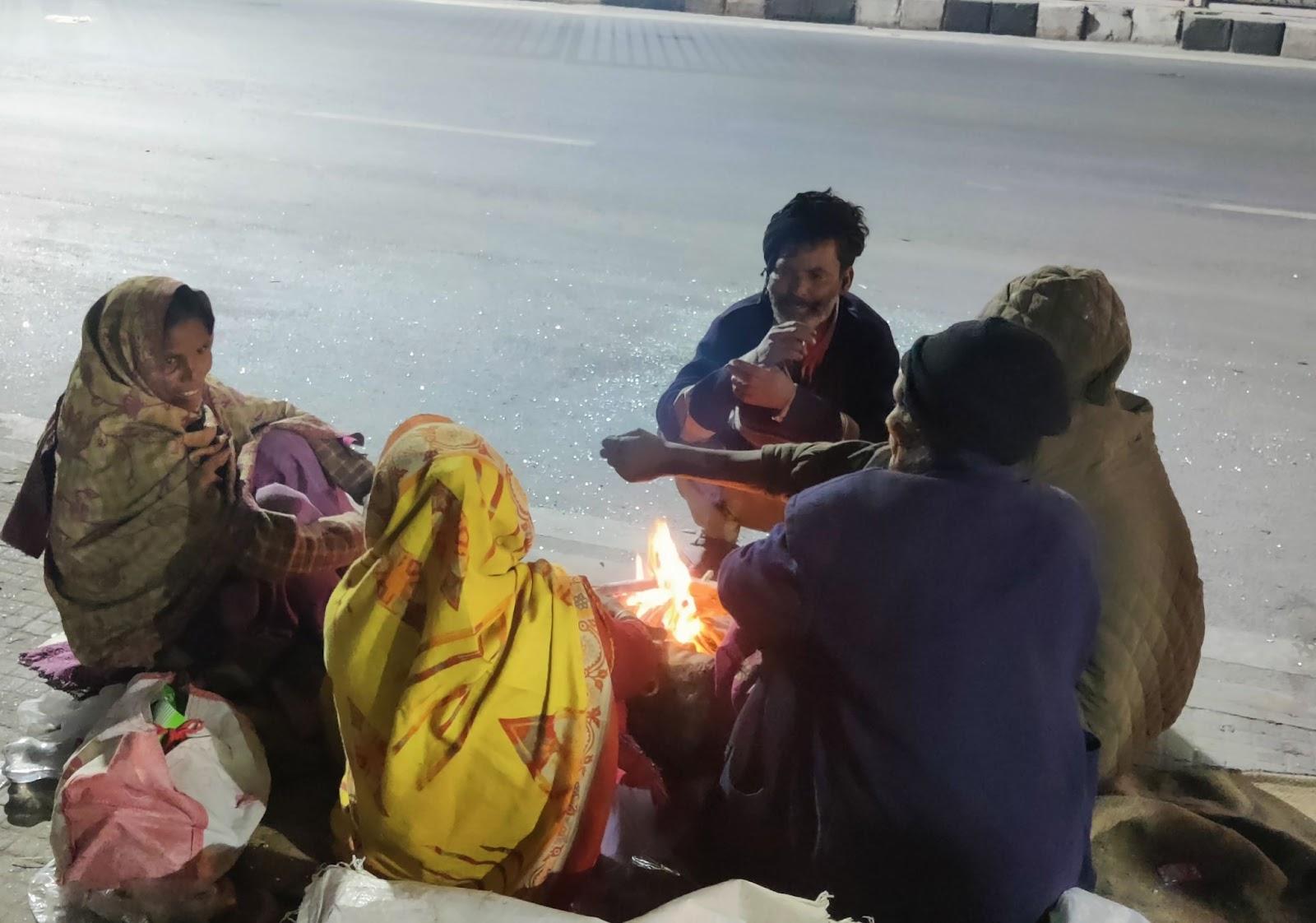Raw Winter: Photo story
How Delhi's homeless survive the cold
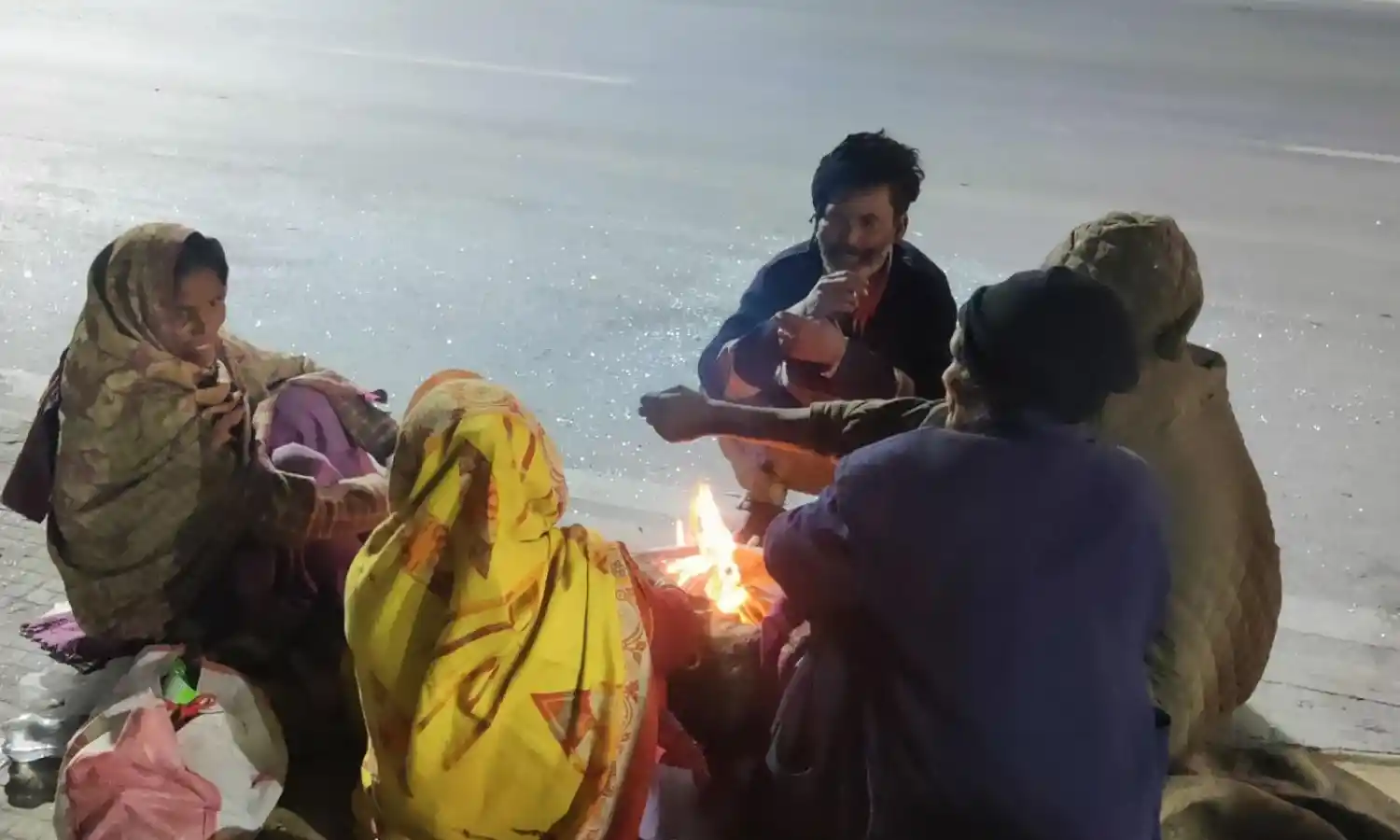
Shaista Bano (37) works at a construction site for a daily wage. Then with her 5 year old child she spends her nights begging and sleeping on the pavement close to the Jamia Millia Islamia University.
“Where should I go then?” she says when asked why she sleeps on the pavement. “The owner of the construction site we work at prohibits us from sleeping on the premises, so we sleep here. Some people often look at us like we are thieves or murderers”.
Delhi’s sprawling streets are freezing at night. You can feel the chill in your bones. People who live here are the ones hardest hit by winter in the national capital, enduring freezing conditions as the temperatures drop to single digits. Untimely winter rains only make the situation worse.
Many are killed by these circumstances. This year alone, 176 deaths due to cold have been reported so far.
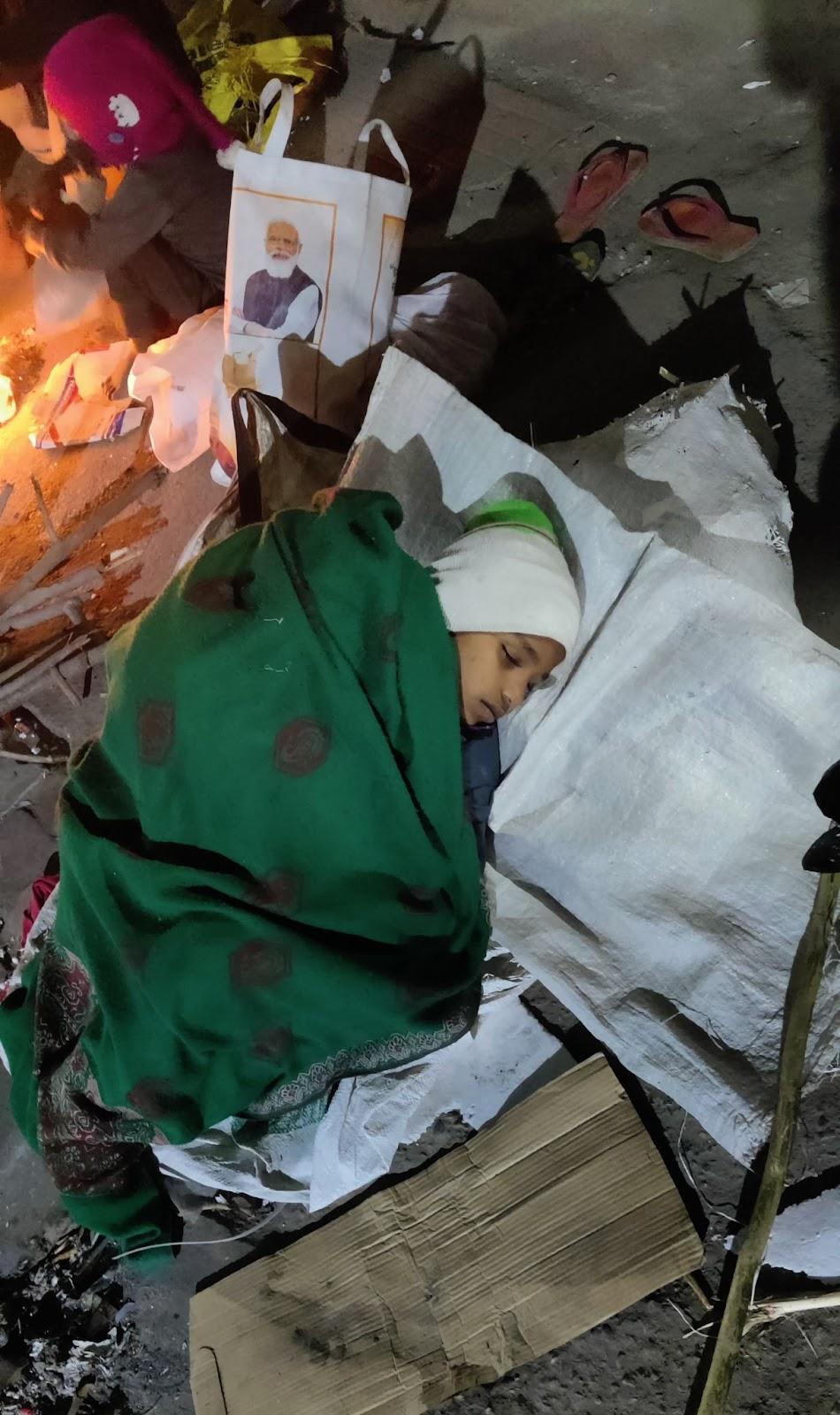
While the last Census found some 47,000 homeless people in Delhi, experts say these numbers are highly undercounted. The Housing and Land Rights Network estimates that there are somewhere between 150,000 and 200,000 dishoused people in the capital.
This winter as the temperature dropped, the curfews in light of rising covid cases added to their misery.
Arvind (45), a rickshaw puller originally from Bihar, starts up a little fire to keep himself and his family warm. “Whatever little work we had has been taken away from us because of this virus. We are living at God’s mercy now.”
Some people living close to these roads also have to face police harassment. “The cops come here and sprinkle water on us while we are sleeping. They abuse us and force us off the street,” says Nishant, 33.
While the Delhi government runs makeshift shelters with NGOs, there are only some 200 such night shelters in the city. They house close to 21,000 people, according to the Delhi Urban Shelter Improvement Board.
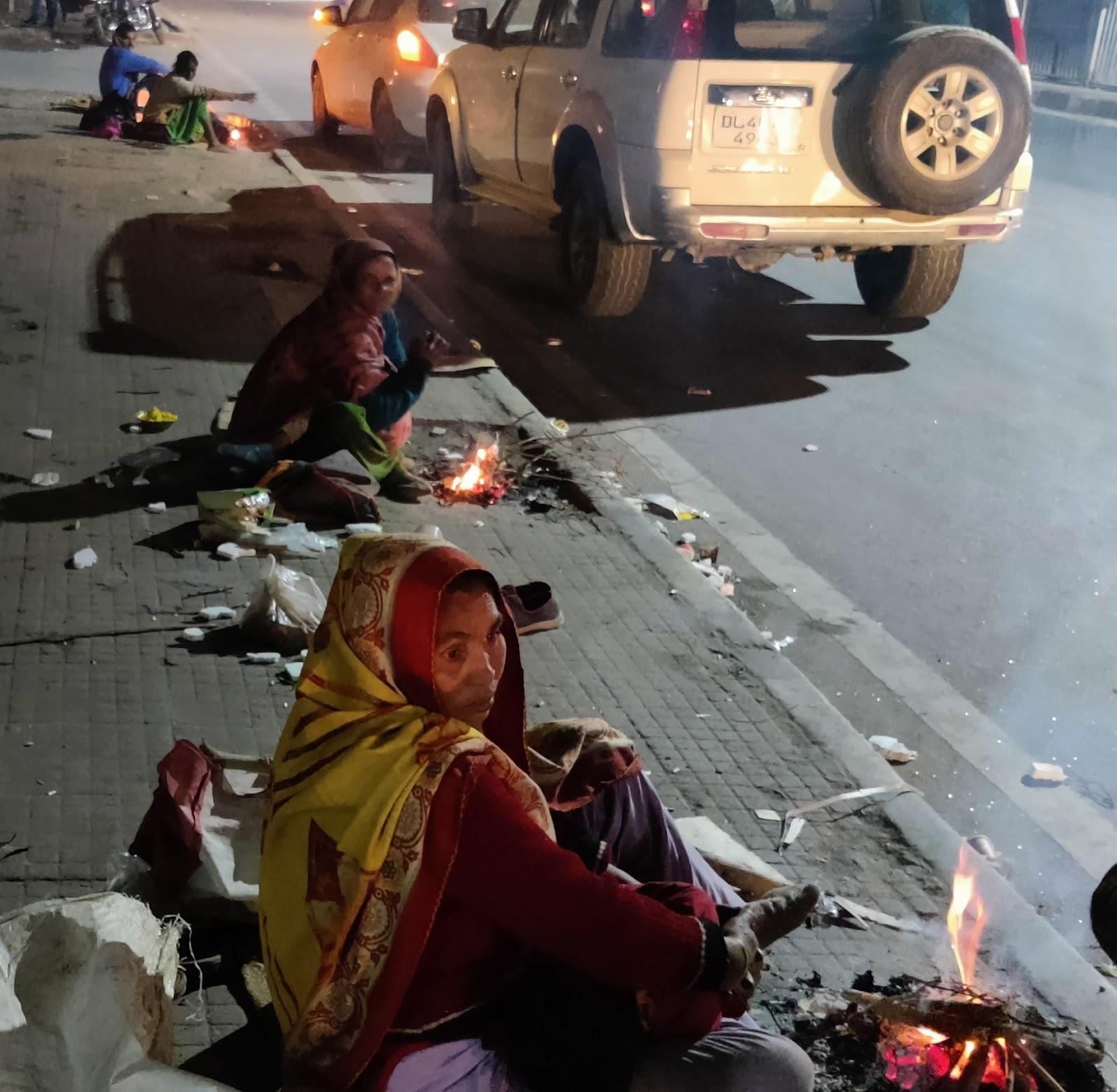
At the Kashmere Gate night shelter one can find people from different walks of life, from disemployed people to patients of addiction, to those whose work was affected by the lockdowns and covid, and those who have come to the city for a short stay and have nowhere else to go.
One such person is Sunil Tyagi, who visits Delhi to purchase stock for his electronics shop in Sirsa. “I come to Delhi every month. I stay here sometimes only when it is too late to go home because it gives me much needed rest before the journey back home”.
Nitin Yadav, who is a caretaker at this night shelter says, “The majority of people coming here are homeless only, some are drug addicts. Our rehabilitation teams pick them up from roadsides and pavements and we feed them with three square meals per day and provide them with washroom and clean bedding”.
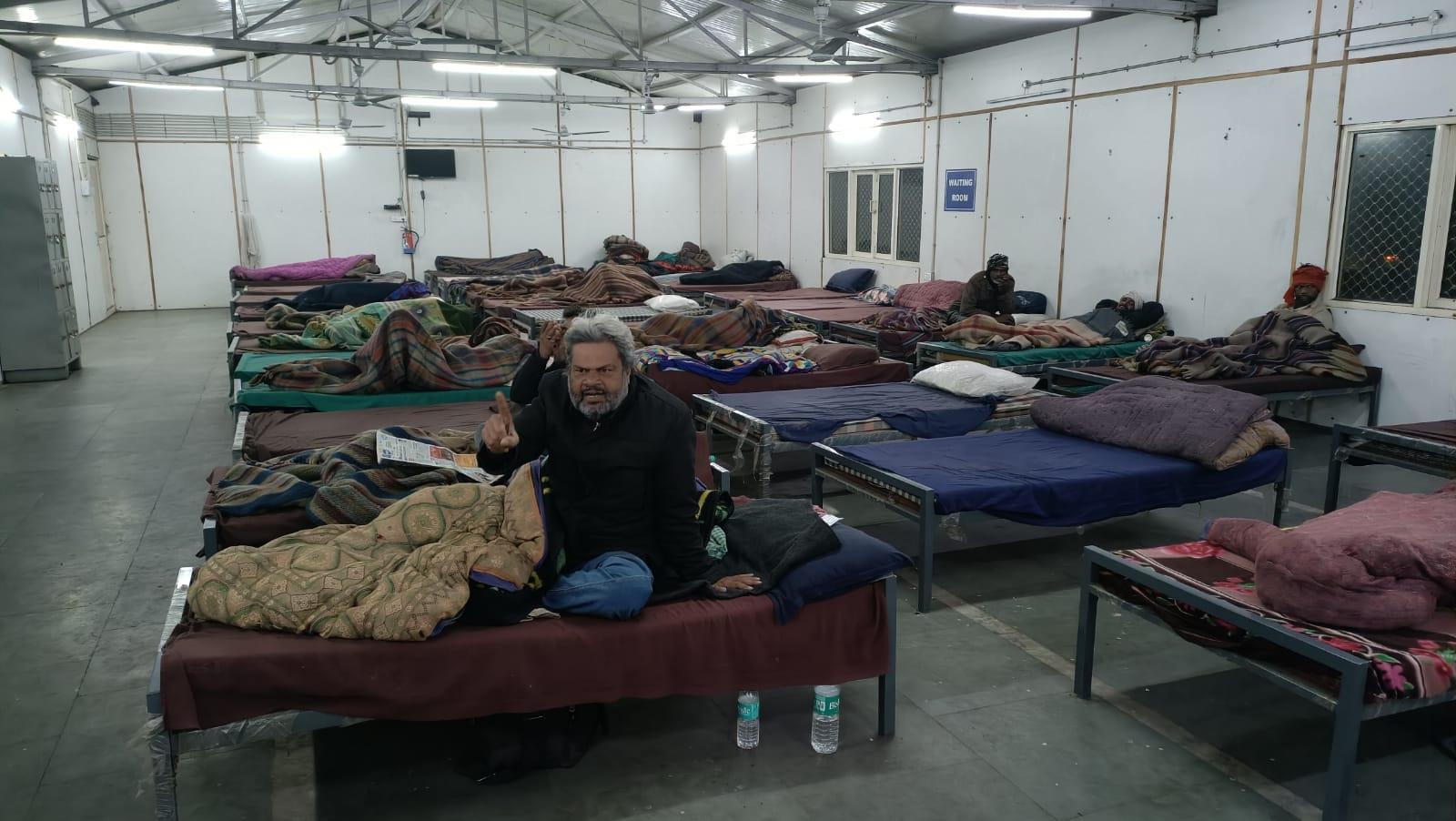
Several DUSIB rescue teams have been deployed to bring dishoused people to these shelter homes. Night shelters like those in Kashmere Gate were full and had no beds available. They also recorded that around 1,160 people had rejected their advances.
Asked why he doesn’t live in a night shelter, Arvind explains, “These shelters are dens of thieves and drug addicts. I have lived there before and I do not wish to go back. These places are some of the filthiest places on earth and I feel much safer on the road”.
